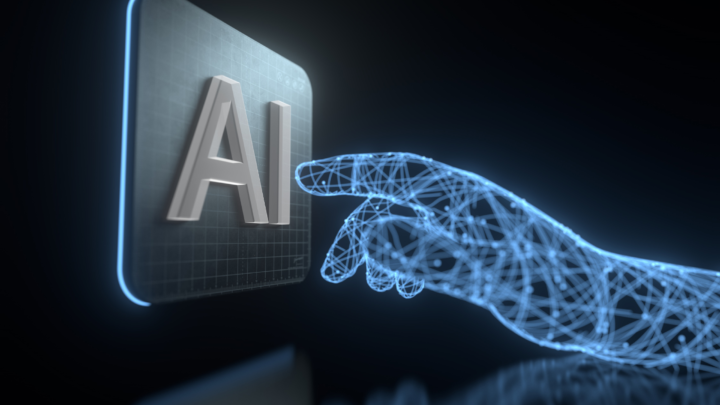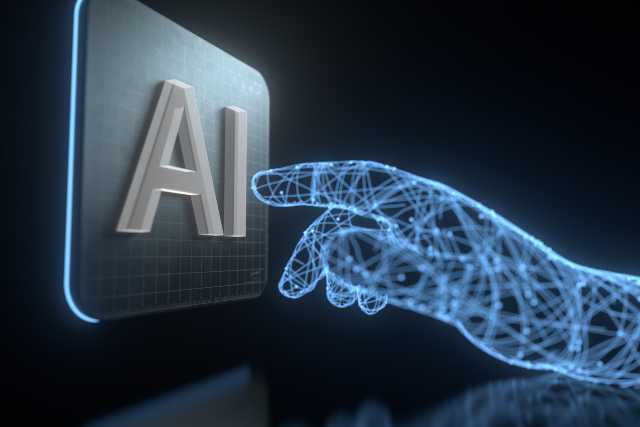How AI and Automation Are Changing HR in the UK
The rise of AI technology and automation in recent years has been hard to miss. These groundbreaking advancements are revolutionising industries across the globe and the world of Human Resources is no exception.
 By Isabella Reed 6th March, 2025 · 4 min read
By Isabella Reed 6th March, 2025 · 4 min read

This innovative technology is helping to reshape traditional HR functions by enhancing efficiency and completely redefining the employee experience. In this latest article, we thought we would explore the multifaceted impact that AI and automation have on HR in the UK and some of the benefits it can bring SMEs.
The growing role of AI in HR
Artificial Intelligence has quickly become a vital aspect of HR functions for everyone from global organisations to small startups. A recent study by HR Review found that 74% of HR departments are either already using AI or plan to start doing so, while 60% said that automation is now a key priority over the coming years.
This technology is helping transform the sector through a number of core functions, including:
Recruitment and talent acquisition
The use of AI and automation is helping to revolutionise the process of recruitment and talent acquisition by streamlining candidate sourcing and selection, making it easier to identify the most suitable individuals for the role.
From automated screening to filter out unsuitable applicants to using predictive analytics to identify candidate success and retention rates, this technology saves a lot of time and resources when searching for the best new talent.
Employee engagement and experience
AI is also boosting employee engagement with the use of chatbots and virtual assistants helping to improve response times and efficiency. One recent study found that 53% of HR professionals have seen an increase in productivity amongst their teams after integrating AI tools into the business
Performance management and analytics
Artificial intelligence can be utilised to monitor and assess employee performance, allowing you to identify those who are going above and beyond.
Learning and development
AI can also be used to analyse areas for improvement and create training programmes to help your employees excel.
Payroll and administration
One of the biggest uses of artificial intelligence in Human Resources is within payroll and administration. This technology is helping to automate many of these previously labour-intensive and time-consuming tasks, allowing your team to focus on those more important jobs.
What are the benefits of implementing AI tools in HR?
Implementing AI and automation tools into your HR functions can provide a wide range of benefits, with some of the most important including:
1) Improved recruitment
With AI helping to identify the most suitable candidates, you will be able to enjoy far more efficient and effective talent acquisition. From reducing the time it takes to sort through applicants by identifying those profiles most suited to the role to using chatbots to filter potentials, it can significantly streamline the entire process.
2) Improved decision-making
Artificial Intelligence is able to analyse vast amounts of data to identify patterns and predict potential risks and areas of improvement. This helps to remove bias and promote fact-based information that helps to improve your overall decision-making.
3) Cost reduction
While AI tools do require some level of initial investment, in the long run, they can help to reduce your expenses. From minimising recruitment costs and helping you cut costs associated with administration to identifying how you can better allocate resources to reduce labour costs, AI and automation are very cost effective.
4) Compliance and risk management
Compliance and risk management are core aspects of HR, and AI and automation can help to ensure your processes are fully compliant with the latest UK employment laws and regulations. It will also be able to continuously monitor and protect employee data from cyber threats.
What are the challenges and concerns of AI in HR?
While there can be no denying the many benefits that AI brings to HR, it is not without certain challenges and concerns. One of the most pressing of these is bias in AI-driven decisions. As the technology learns from historical data, it can inadvertently reinforce discrimination in hiring and promotions, resulting in unfair outcomes. AI also relies on vast amounts of employee data, making it vulnerable to breaches and raising concerns around privacy and security.
Another major challenge is the impact on jobs and workplace culture. While AI automates repetitive HR tasks, employees may fear job displacement, leading to resistance to adoption. Communication is essential when implementing AI into the workplace to ensure that employees understand it is there to enhance their work, not replace them.
Lastly, ethical and legal uncertainties surrounding AI in HR remain a significant concern. As AI regulations continue to evolve, businesses must stay ahead of compliance requirements to avoid legal risks related to unfair hiring practices or data misuse.

Ready to elevate your HR?
Are you ready to simplify your HR and take your operations to the next level? Here at Zennith, we offer a powerful all-in-one platform that has been designed for the teams of the future. Our seamless software has been created for SMEs and gives businesses all of the tools they need to streamline administration, recruitment and employee management.
Want to learn more and unlock the power of smart HR solutions? Start your free trial today!
Transform Your HR Experience Today
Discover how ZenHR’s powerful, easy-to-use tools can simplify your HR management.




